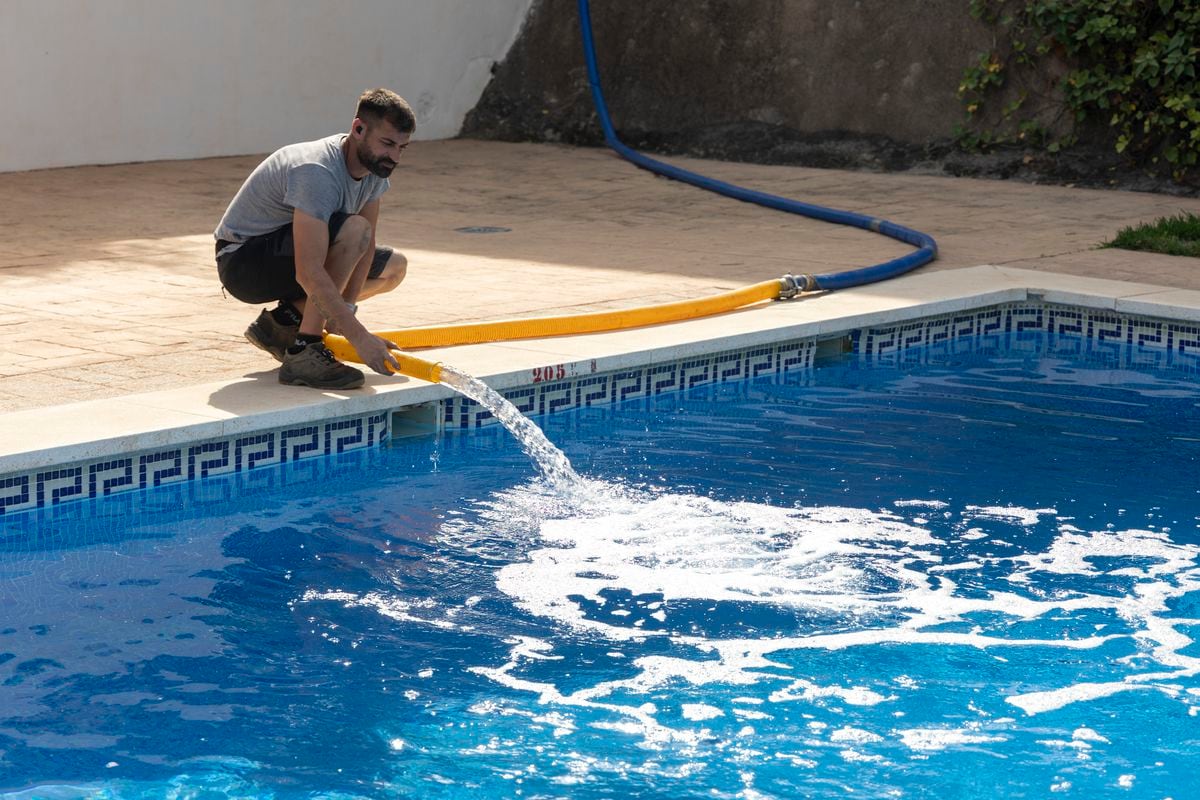Old networks, leaks, punctures, breaks, temporary patches, disinterest or fraud.
These are just some of the reasons why fifty small municipalities in Malaga —half of the entire province— lose up to 7,000 million liters of water during its distribution from the tank to the household taps.
The figure comes from a report promoted by the Provincial Council of Malaga that studies the local supply networks that indicates that the water that is wasted in 51 locations analyzed so far in one year would give 90,000 people a drink.
That is, the population of the 64 towns with the smallest population of Malaga or of cities such as Lugo, Cáceres or San Fernando.
"It is useless to build wells and reservoirs or transfer water if the water is lost along the way," says Francisco Salado (PP),
Malaga is one of the regions that is suffering the most from the current drought situation.
With the swamps at a third of their capacity and that of La Viñuela in critical condition with just 9.9% of the reservoir volume, according to Red Hidrosur, the territory begins to impose restrictions while debating between the priority uses that water should have , how to distribute it or how to improve supply with new infrastructures such as desalination plants.
This is one of the reasons why the Provincial Council launched a study last spring —valued at one million euros— to analyze more than 800 kilometers of pipes in 77 of the 101 municipalities in Malaga —those with fewer than 20,000 inhabitants— and to find out the state of the supply network.
This Wednesday he presented an advance with the data of 51 towns and the diagnosis is quite pessimistic:
there are only a few in the Serranía de Ronda with practically no leakage.
The rest accumulate several.
Some up to 45 and lose almost half of the flow in transit.
To make their calculations, specialists have analyzed the hours of lowest consumption, between two and four in the morning.
The data has shown that the cost is much higher than it should be at that time and that the cause is the existence of a large number of leaks and fraudulent seizures, as they have been able to verify later on the ground.
They have also carried out tests and have verified that when some of the detected leaks are solved, night consumption decreases.
The first calculations show that some 19,450 cubic meters per day are lost when they circulate through the pipes, which add up to about seven cubic hectometres per year.
The approximate cost of that water would exceed 3.5 million euros, an amount that the municipalities also stop entering.
On many occasions it has not been necessary to do a great deal of research to detect problems.
It has been enough to lift the covers of the manholes to observe tubes with unstable joints or breaks, poor connections or poorly adjusted parts.
The main reasons detected are the aging of the sanitation network and the existence of patches to solve faults that stop working over time.
Sometimes the situation is so unstable that a fix at one point produces a problem at another.
The situation is critical for many localities, some of which accumulate almost fifty breakdowns.
The supra-municipal administration believes that fixing the network is not a priority.
It is the norm, but it has exceptions.
Like that of Teba, a municipality of about 4,000 inhabitants whose council renewed the entire distribution network seven years ago between the municipal deposit and the homes.
"I still do not know the specific data of the town, but I am sure that we have greatly reduced leaks", highlights its mayor, Cristóbal Miguel Corral (IU), who believes that the study being carried out by the Provincial Council is "fabulous".
Sources in the sector believe that many other towns forget to improve the pipes because "works underground, those that are not seen, do not give votes."
And they also attribute it to the fact that in some of them the water is practically free for their neighbors and the idea that nothing happens to waste it is ingrained.
The Diputación hopes to draw attention to the importance of avoiding losses, waste and fraudulent connections.
And it has been made available to rural areas to help with investment, giving a wake-up call to those who prefer to spend on parties.
"Others have used them to distribute hams at Christmas," Salado has complained.
In fact, the supra-municipal institution has invested almost 17 million euros since 2019 and plans another 15 million in hydraulic works and sanitation that have helped solve supply problems in towns such as Valle de Abdalajís, Fuente de Piedra or Campillos.
Its president, in addition, has highlighted having made an effort to transfer unconditional funds - that is, without a specific purpose - to the municipalities and has asked them to also use them to improve their networks in an "urgent" manner.
Until they do so, more than 7,000 million liters of water will continue to be lost each year in Malaga.
Subscribe to continue reading
read without limits
Keep reading
I'm already a subscriber




/cloudfront-eu-central-1.images.arcpublishing.com/prisa/HMVSM5KDLBGADLNKYFJTTB4Y7M.jpg)

/cloudfront-eu-central-1.images.arcpublishing.com/prisa/JSZAI54QNNG2PE36BGH3NJUXQ4.jpg)


